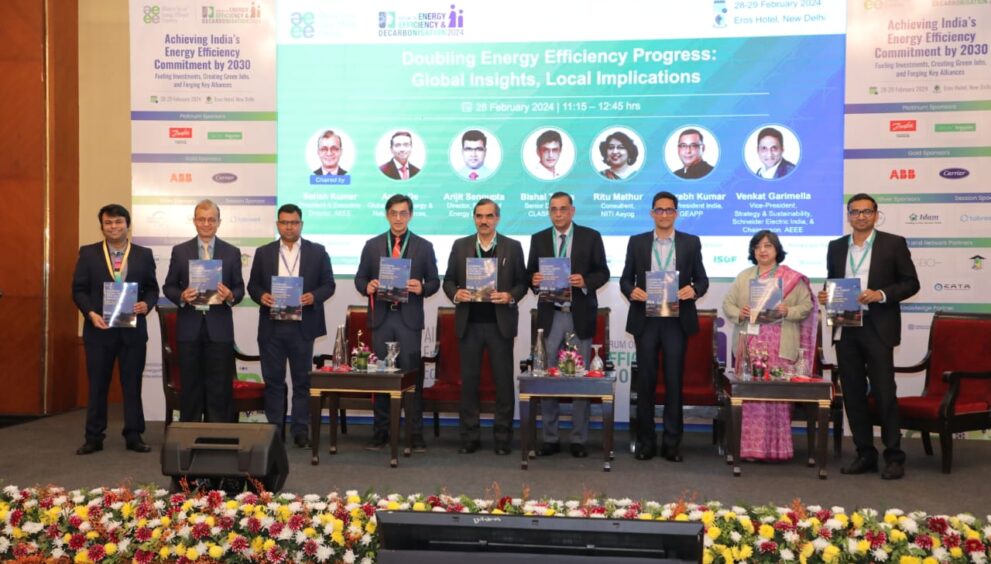AEEE Report Urges G20 Action For Doubling Global Energy Efficiency By 2030

A new report at FEED 2024 calls on G20 leaders to prioritise integrated policy approaches and increased investments in Energy Service Companies (ESCOs) to double the rate of global energy efficiency improvements by 2030, highlighting India’s leadership in energy efficiency initiatives
In a bid to accelerate global progress in energy efficiency, a recent report titled “Doubling Global Energy Efficiency Progress: How the G20 can Lead the Way” has focused the importance of integrated policy approaches, increased investments in Energy Service Companies (ESCOs) and the adoption of cutting-edge technology. The report highlights the commitment of the G20, as reflected in the G20 New Delhi Declaration, to double the rate of energy efficiency improvements by 2030.
The report was introduced at the fourth edition of the Forum on Energy Efficiency and Decarbonisation 2024 (FEED 2024), the annual flagship event of the Alliance for an Energy Efficient Economy (AEEE). Satish Kumar, President and Executive Director of AEEE, emphasised the pivotal role of energy efficiency in addressing climate change, stating, “The transformative landscape shifts in 2023 highlighted the critical role of energy efficiency, marking a significant milestone after three decades.”
Key findings of the report focus on building energy codes, electric motors and the role of ESCOs in doubling the global rate of energy efficiency improvement. It stresses the need for robust enforcement mechanisms for building energy codes, transitioning to high-efficiency motors, and leveraging ESCOs to achieve ambitious energy efficiency targets.
During the event, Abhay Bakre, Director General of the Bureau of Energy Efficiency, highlighted India’s focus on energy efficiency as a cornerstone for achieving its climate goals. He noted that energy efficiency has the potential to contribute up to 40 per cent of India’s emission reduction targets outlined in its Nationally Determined Contributions (NDCs). Bakre emphasised the importance of mapping and quantifying the potential of energy efficiency measures across different sectors, calling for collective efforts to mobilise diverse stakeholders.
FEED 2024 continues to serve as a crucial platform for shaping sustainable energy practices, emphasizing decarbonisation and smart energy management in the journey toward a net-zero economy. The event facilitated interactions among stakeholders within India’s energy ecosystem, attracting over 80 distinguished speakers and more than 1.2K stakeholders from 625 industry, government bodies and institutions.





































































































































































































































































































































































































































































































































































































































































































































































































































































































































































































































































































































































































